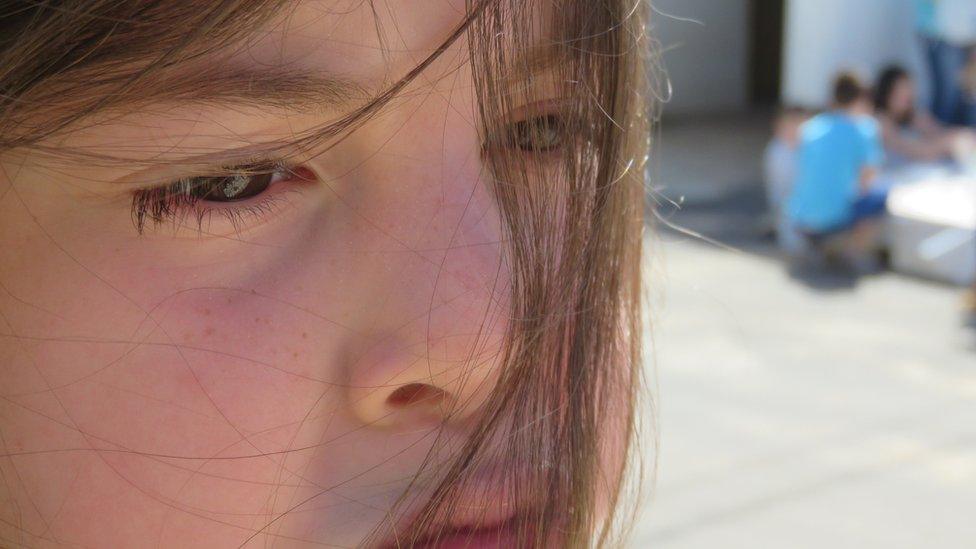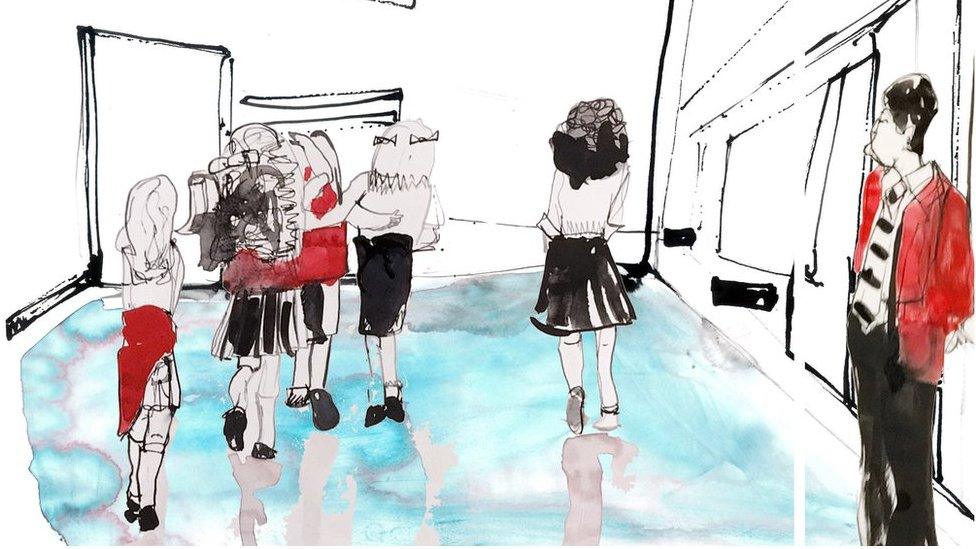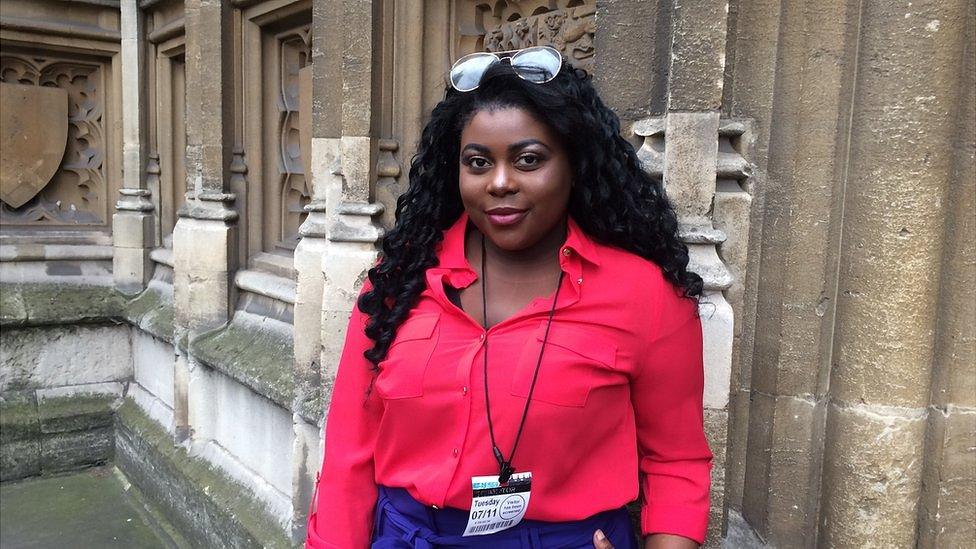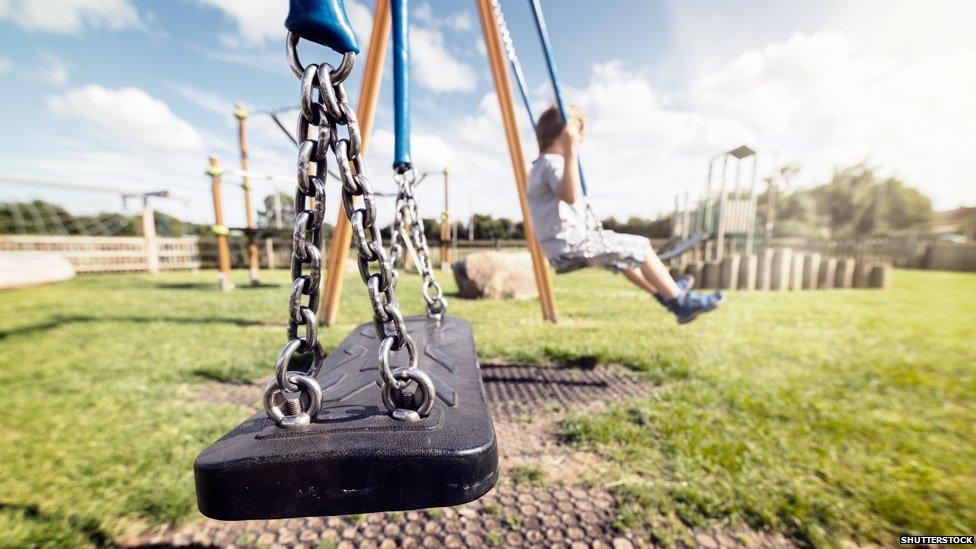School exclusion 'the ultimate rejection' for adopted kids
- Published

Adoption UK says exclusion reinforces rejection
"Being permanently excluded was the ultimate rejection for him," says Faye, mother of 15-year-old Joe.
Faye says since he was excluded from secondary school, Joe's behaviour has deteriorated, with a devastating knock-on effect for the rest of the family.
But this family's experience is not unusual, according to a report by the charity Adoption UK.
Its research estimates adopted children can be up to 20 times more likely to be permanently excluded than their peers.
The charity surveyed 2,084 of its members and found that of those with adopted children at school in 2015-16, 12% had had a fixed-term and 1.63% a permanent exclusion.
This compares with a rate of 4.29% for fixed and 0.08% for permanent exclusions across all state schools in England.
Adoption UK says that while its survey is indicative rather than scientific, it raises serious concerns.
Its report says adopted children often experience challenges in education, with the "effects of early loss, trauma, abuse and neglect" accounting for much of this.
"Our survey revealed that many adoptive families have struggled in their search for a school that can understand and cater for their child's needs," it says.
Faye says her son had coped fairly well in his small, nurturing primary school but struggled when he made the transition to secondary school.
"They put him in isolation when he did something wrong, which wasn't good for him," she says.
"They didn't understand the huge sense of shame and rejection that adopted children feel.
"The other major thing is organisation. Adopted children are on another level - we have to remind them to clean their teeth, but their teachers expect them to remember various different textbooks each day.
"I've got a file full of negative letters about him from the school."
Joe was temporarily excluded on a number of occasions and then was permanently excluded earlier this year.
"That has been the ultimate rejection for him. He was sorting his head out about his own rejection, but now he's in a pupil referral unit," says Faye.
"His behaviour has gone drastically downhill, and his behaviour has become increasingly unmanageable, dangerous and aggressive.
"He's now got dreadful anxiety about learning and school."
Faye believes adopted children need a small, nurturing school with staff who understand the sorts of issues children with a history of care often have.
"But these schools don't seem to exist," she says.
"One of the main things is the size of the school, because they get lost and they feel like a very small fish."

Parents' responses to Adoption UK survey
"Exclusions only serve to add to feelings of low self-worth for an adopted child"
"Schools should have more training to better enable them to deal with adopted and looked-after children"
"It was exclusion by stealth. He was held in from playtime, excluded from school trips and after-school clubs. He was made to feel very bad about himself"
"[Exclusions] become a shameful self-fulfilling prophesy for children experiencing attachment trauma"

Adoption UK is calling for school staff to have better training around the needs of adopted children and for better support for these children throughout their schooling.
The charity's schools development officer, Becky White, says: "The true extent of this problem is being masked because schools are regularly asking adoptive parents to take their children home and keep them out of school, without recording them as exclusions.
"We need to find better ways of improving the situation for children and teachers rather than relying on exclusions.
"The challenge for us now is in convincing education professionals that extra support is needed for adopted children from the start - instead of waiting until they are at crisis point."
Children and Families Minister Robert Goodwill said there was a "range of measures in place" to help adopted children in England, as well as priority admission to schools that best met their needs.
"From April 2018, a network of 'virtual school heads' and designated teachers will be responsible for ensuring adopted children are getting the support that they need," he said.
"Alongside this, we are reviewing exclusions in schools to look at how we can improve practices and focus on the experiences of those groups who are disproportionately likely to be excluded."
- Published19 October 2017

- Published7 November 2017

- Published23 October 2017
